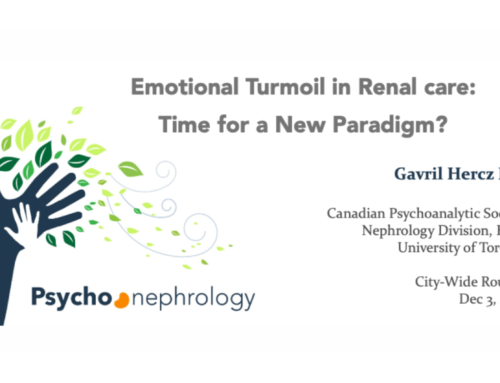
Hello My Name is: How a sensitive health care professional can make a difference
We all have, probably more than once, visited hospitals and diagnostic centers, and I am sure, most of us experienced some level of anxiety. The most anxious moments can be while waiting for test results. This anxiety of the dreaded unknown is often significantly modified by how these results were communicated to us, better or worse.
Words can inspire. And words can destroy. Choose your words well.
– Robin Sharma
These turbulent thoughts become more pronounced when the results are unclear or negative. Doctors and nurses choose their profession with the hope of making patients feel better, both physically and emotionally. These efforts at providing comforting care may be difficult when the health care professionals and patients find themselves swept up in a whirlpool of tense emotions. What can a healthcare provider do to make this situation less tense? Here are some suggestions.
Introduce yourself
It may seem a mundane activity, telling your name to every patient you meet, but for a first-time patient, this little introduction can enhance a personal connection. You can also ask about the family members accompanying the patients to put them at ease and acknowledging their role in the clinical encounter.
Delivering the information
Ask the patient if she prefers to receive this now or later. Don’t just read the report details. The patient is in an incredulous state, and the medical jargon will only make that worse. Empathy can help you in monitoring the patients’ and their families’ qualms, coping skills and abilities to hear the next piece of the information. Vital Talk has useful resources for physicians on nurturing healthier connections between patients and clinicians.
Avoid any distractions
While delivering the news or while treating the patient. Informing your assistants about the situation and switching off your phone can make a huge difference.
Check your emotional state too
Sometimes you may feel that your emotional state is not in a place where there is adequate space for conveying information and monitoring the patient’s status. In that case, it is best to defer the meeting or to hand over the task to some other professional, who can deliver the news in the most compassionate and sensitive manner.
Choose words carefully
Choice of words matters the most. However, this certainly doesn’t mean that we should misguide the patient or hide something from him or her. The situation should be told while keeping a check on the patient’s emotional state. Don’t joke or try to make light of it, which mainly relieves you rather than the patient.
Be a good listener
Silence can be awkward but give the patient enough time to comprehend the situation. Ask if she or her family have any questions and answer them all honestly and emphatically in equal proportions
Don’t sound gloomy
Studies have shown the importance of offering hope, in whatever form it may take. This may mean discussing time-limited trials of treatment, with reassessment after a defined period. This defines the therapy as an ongoing relationship which will intermittently define the next step.
Follow-up
Patients can be provided with a contact number which they can call for further questions or clarifications. Use words like I am here for you, I can understand etc. A follow-up, with preferably a call, would go a long way to allaying anxieties.
Cultural sensitivity
Various cultural backgrounds affect people’s perceptions of life and health. The goal of the nurse is to develop a body of knowledge that allows them to provide cultural specific care. This begins with an open mind and accepting attitude.
No blame game
Do not criticize other physicians or take their side. As well, don’t jump to conclusions too soon.
Technology and healthcare
Though extremely useful, one should also assure that technology should not overpower the caring part of healthCARE. In one of our recent articles “How Technology has impacted the Health Care Arena” we shared a study that concludes, “When physicians spend too much time looking at the computer screen in the exam room, nonverbal cues may get overlooked and affect doctors’ abilities to pay attention and communicate with patients.”
One study called, “Physicians’ empathy and clinical outcomes for diabetic patients” concluded that “The hypothesis of a positive relationship between physicians’ empathy and patients’ clinical outcomes was confirmed, suggesting that physicians’ empathy is an important factor associated with clinical competence and patient outcomes.”
In another article, “Empathy in the therapeutic relationship between the physician, nurse, and patient”, the author mentions that
“Standing by the patient cannot be simple passive waiting for changes and progress of the treatment process. They are expected to be active in the therapeutic contact, predictive and able to evaluate taken actions for the sake of their patient. Their relationship with the patient should be dominated by an awareness of the fact that a correctly built and sustained relation based on empathy is beneficial to both sides.”
Image Source
About the Author
Dr Gavril Hercz
Dr. Gavril Hercz is a nephrologist at Humber River Health and Associate Professor of Medicine, University of Toronto. He completed his psychoanalytic training at the Toronto Psychoanalytic Institute and is a member of the Canadian Psychoanalytic Society. His major area of interest is the impact of physical illness on patients, families, and caregivers.
We all have, probably more than once, visited hospitals and diagnostic centers, and I am sure, most of us experienced some level of anxiety. The most anxious moments can be [...]



